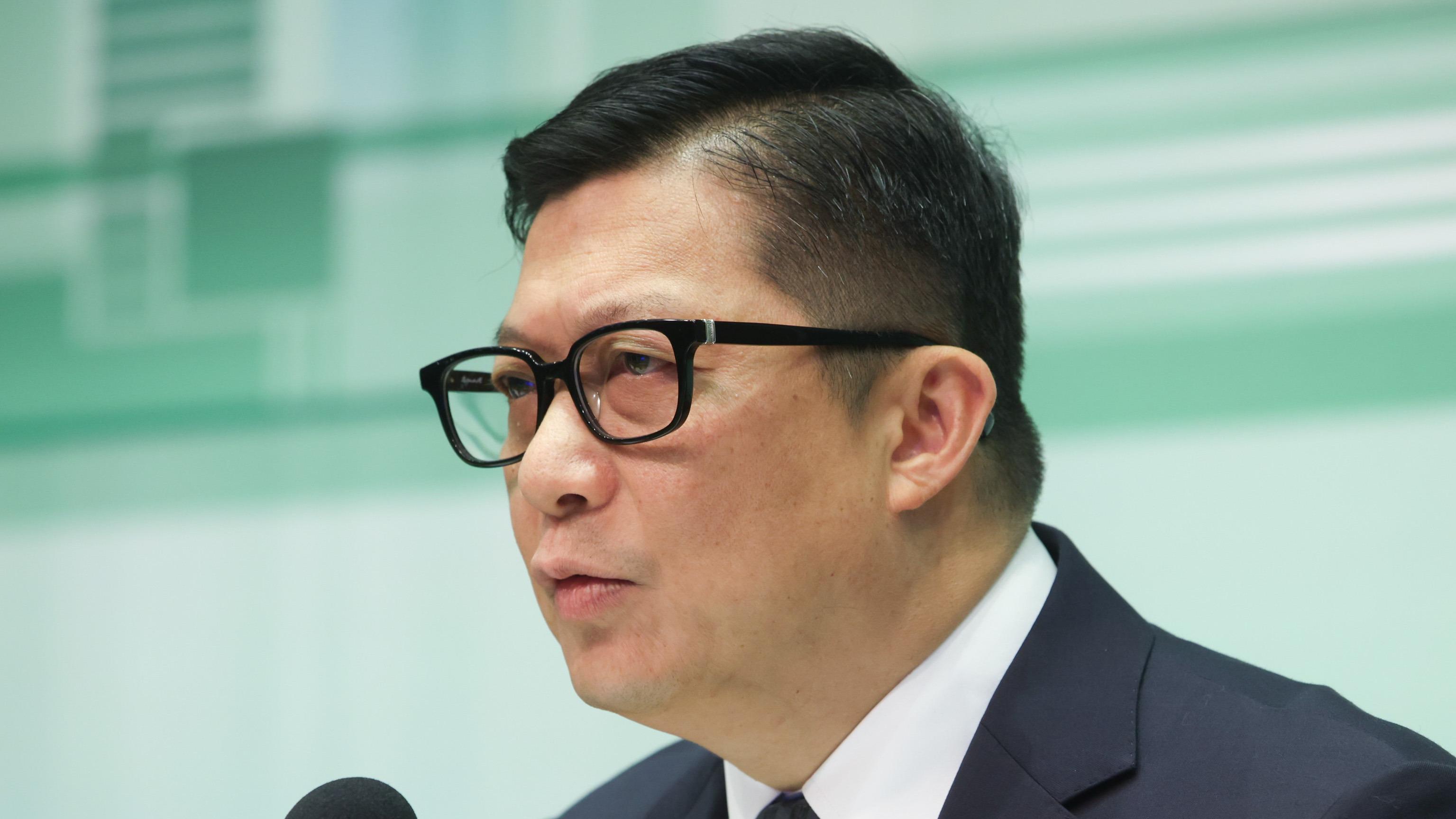 Secretary for Security Chris Tang Ping-keung speaks at a press conference at the Central Government Office on Oct 27, 2023. (CALVIN NG / CHINA DAILY)
Secretary for Security Chris Tang Ping-keung speaks at a press conference at the Central Government Office on Oct 27, 2023. (CALVIN NG / CHINA DAILY)
HONG KONG - Secretary for Security Chris Tang Ping-keung emphasized on Saturday that it is “very common” for the Legislative Council to delegate power to executive authorities to make subsidiary legislation.
Tang made the comment after media concerns over the empowerment of the Chief Executive-in-Council to make subsidiary legislation on safeguarding national security in the amendments to the Safeguarding National Security Bill.
Tang noted that it is a common practice in common law system jursidictions to leave detailed and technical matters of the primary legislation, such as implementation details and administrative matters, to be set out in subsidiary legislation
"Comprehensive measures to safeguard national security require the empowerment of the executive authorities to formulate implementation details and administrative matters. Moreover, national security risks can emerge all of a sudden and cannot be predicted at the moment, Tang said, adding that members of the public do not need to be concerned.
“By empowering the CE-in-C to make subsidiary legislation to set out the implementation details as required by the Hong Kong National Security Law and its interpretation, as well as the Safeguarding National Security Ordinance, the mechanism to safeguard national security can be implemented more effectively, and the national security risks can be prevented and addressed timely," he added.
ALSO READ: US urged to stop interfering in HK's Article 23 legislation
Tang noted that it is a common practice in the common law system to leave detailed and technical matters of primary legislation, such as implementation details and administrative matters, to be set out in subsidiary legislation.
He pointed out that other jurisdictions like the United Kingdom and the United States also have a similar practice.
In the Hong Kong Special Administrative Region, more than 20 pieces of subsidiary legislation have been made since Jan 1, 2024, Tang said.
These include the Road Traffic (Autonomous Vehicles) Regulation made by the Secretary for Transport and Logistics to regulate licenses, certificates, tests, inspections and risk management of autonomous vehicles under the pilot scheme of the project on these vehicles set out in the Road Traffic Ordinance.
"Subsidiary legislation has to be made in accordance with the requirements of the primary legislation. Its content must not exceed the scope of the matters regulated under the primary legislation,” Tang said.
READ MORE: Security bill: LegCo removes barriers to resume 2nd reading
He also thanked the various sectors in society, groups and members of the public for their support for the Safeguadring National Security Bill, including the Hong Kong General Chamber of Commerce; the Chinese Manufacturers' Association of Hong Kong; the Federation of Hong Kong Industries; the Chinese General Chamber of Commerce, Hong Kong; the Hong Kong Chinese Importers' & Exporters' Association; the legal sector; the media sector; the youth sector; and other professional sectors and political parties.
During the public consultation on the bill, 98.6 percent of the views received showed support and gave positive comments, reflecting a strong consensus in society for the legislation of Article 23 of the Basic Law, Tang added.


